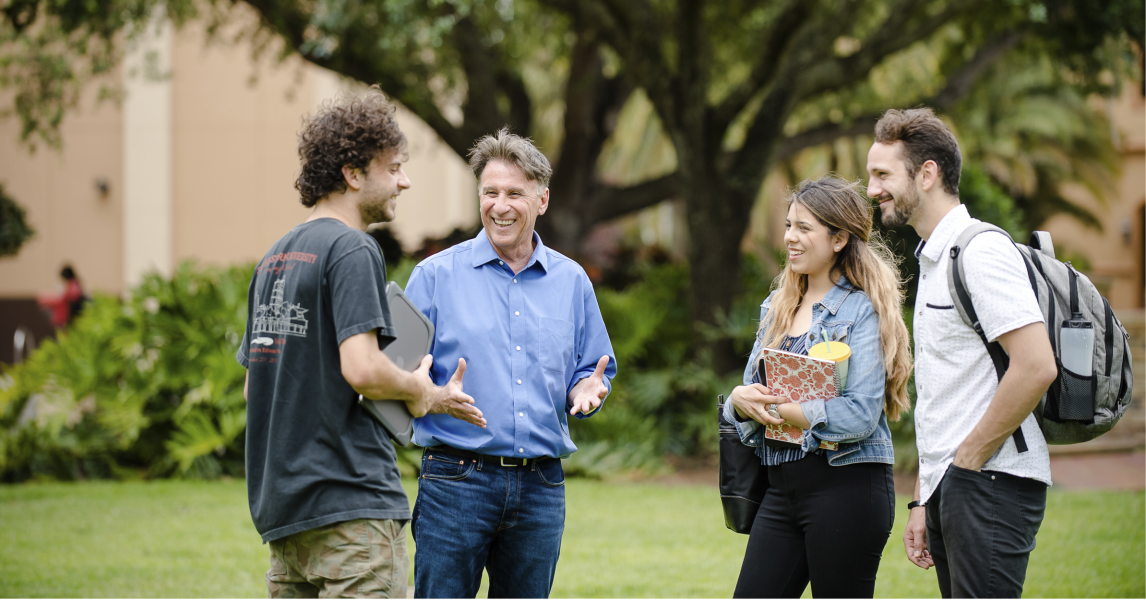One of the biggest things you will take away from college will be your relationships. The friendships you make will help form who you are, and many of those connections will stay with you well beyond graduation. Your relationships with your professors are no different.
Their role in your education extends beyond just teaching your classes. Your professors have the unique ability to affect your academics, your mental health and your future career.
Here are three ways your professors can positively impact your life.
1. Influence Your Career.
Many of your professors started their careers where you are now: as students. Countless educators also work in their fields and can have valuable, real-world insights to offer you. While their professional journeys may differ from yours, their experiences can help you learn about your future career and make the most of your education.
Talk with your professors about their career paths. Ask them how they got to where they are today, what they have learned and what advice they have for you as you start your career. They may even have practical insight on what courses will benefit you in the future and how you can best use your degree in the professional world. Your instructors have been where you are going, so don’t be afraid to ask questions or get their thoughts on what it’s like to work in their profession.
2. Enhance Your Academic Experience.
Having a positive relationship with your professors can significantly improve your learning and help you make the most of your time in the classroom.
Research done at an Australian university showed that students who had positive relationships with their instructors had increased engagement with the class as they were more likely to work harder, ask questions and get help when needed. The study also showed that positive student-professor relationships can lead to increased well-being and a sense of belonging, along with greater course enjoyment.
Foster a positive relationship with your professors by engaging with course content and lectures. Respond to questions during class, take notes and be an attentive listener. Listen to your instructors’ feedback on your assignments and ask how you can improve. Being a good student will allow you to glean all that you can from your instructors and help you make the most of your time in their classes.
3. Support Your Mental Health.
Your instructors’ primary role is to teach you and challenge you, but they also care about your academic and mental well-being. They are there to support you on your academic journey.
A 2021 report across 12 colleges by the Mary Christie Institute showed that 80% of the 1,700 surveyed faculty had discussions with their students about their mental health. Having a positive, honest relationship with your professors can lead to greater feelings of “autonomy, environmental mastery, purpose in life and self-acceptance,” according to a study from Higher Education Research & Development.
Don’t be afraid to reach out to your professors if you are struggling. Talk to them after class, meet with them during their scheduled office hours or reach out with concerns. Speak up during class if you have questions or need something clarified. Your instructors want to help you succeed, so practice being honest and asking for help when you need it.
Don’t take your time in school for granted. Value each one of your relationships with your instructors, ask their advice and make an effort to be present and engaged. You never know the impact a professor may have on your life.

